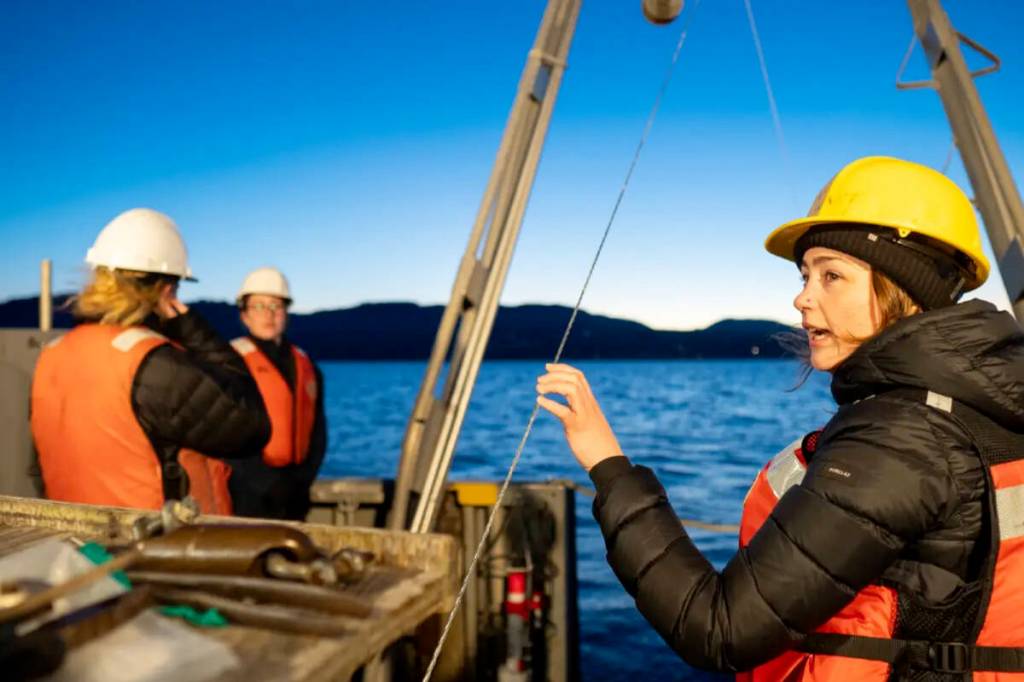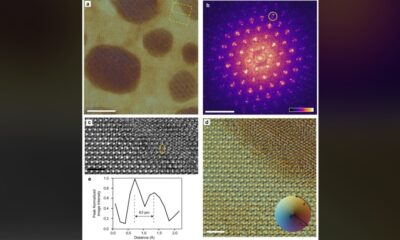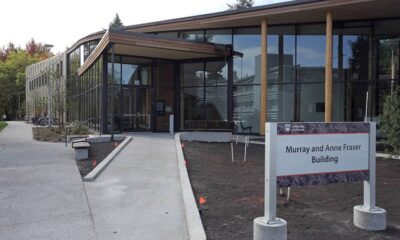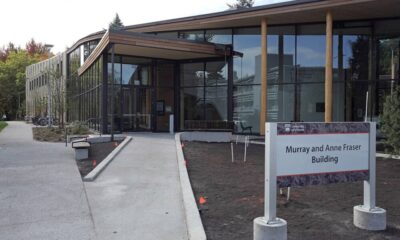Science
RV John Strickland Marks 50 Years of Ocean Research Impact

A significant milestone was celebrated on November 4, 2023, as the RV John Strickland marked its 50th anniversary. The research vessel, which has been instrumental in the development of the University of Victoria (UVic) biology, earth, and ocean sciences departments, was commemorated by students, faculty, and alumni during a summer gathering.
“It’s touched a ton of people,” remarked Eva MacLennan, an oceanography instructor who coordinates expeditions aboard the Strickland. Many attendees reflected on their experiences aboard the vessel, with some having taken courses there decades ago, still expressing fond memories of their time on the water.
Since its inaugural launch in 1975, the Strickland has facilitated the research and education of thousands of students, professors, and researchers. It provides unique opportunities for observing marine mammals and birds, studying algae and aquatic plants, and conducting hands-on research in a variety of marine science disciplines. “Our oceanography program is so robust because students get to experience what real oceanographic field work is like,” MacLennan explained. Students utilize professional-grade equipment, engage in data collection, and analyze their findings throughout the semester, gaining valuable insights into marine ecosystems.
Impact on Local and Global Research
The RV John Strickland primarily operates in the Saanich Inlet, where researchers frequently conduct studies. This unique marine environment, nestled between the Malahat and Saanich Peninsula, has served as a backdrop for numerous research projects, covering topics from turbulence to phytoplankton productivity. The inlet has been a critical site for many honours and graduate students who have relied on the vessel for sample collection.
Beyond its local impact, the Strickland has also been central to significant research initiatives across a broader range. It has enabled scientists to analyze surface sediments for hydrocarbons along various points of Vancouver Island, conducted a rockfish survey in Tlupana Inlet, and supported studies involving sea otter transplants to the Nootka Sound.
With five decades of service, the RV John Strickland has provided invaluable experiences to countless individuals. MacLennan, who herself benefited from studying aboard the vessel during her undergraduate years, emphasized the transformative power of experiential learning. “I hope that it will continue to provide that access to experiential learning,” she stated. “It really transforms our oceanography program into something quite extraordinary, and I hope that it continues to do that.”
As the RV John Strickland enters its next chapter, its legacy of fostering scientific inquiry and education in marine sciences remains firmly established, promising to inspire future generations of oceanographers and researchers.
-

 World4 months ago
World4 months agoScientists Unearth Ancient Antarctic Ice to Unlock Climate Secrets
-

 Entertainment4 months ago
Entertainment4 months agoTrump and McCormick to Announce $70 Billion Energy Investments
-

 Lifestyle4 months ago
Lifestyle4 months agoTransLink Launches Food Truck Program to Boost Revenue in Vancouver
-

 Science4 months ago
Science4 months agoFour Astronauts Return to Earth After International Space Station Mission
-

 Technology2 months ago
Technology2 months agoApple Notes Enhances Functionality with Markdown Support in macOS 26
-

 Top Stories4 weeks ago
Top Stories4 weeks agoUrgent Update: Fatal Crash on Highway 99 Claims Life of Pitt Meadows Man
-

 Sports4 months ago
Sports4 months agoSearch Underway for Missing Hunter Amid Hokkaido Bear Emergency
-

 Politics3 months ago
Politics3 months agoUkrainian Tennis Star Elina Svitolina Faces Death Threats Online
-

 Politics4 months ago
Politics4 months agoCarney Engages First Nations Leaders at Development Law Summit
-

 Technology4 months ago
Technology4 months agoFrosthaven Launches Early Access on July 31, 2025
-

 Top Stories2 weeks ago
Top Stories2 weeks agoFamily Remembers Beverley Rowbotham 25 Years After Murder
-

 Top Stories1 week ago
Top Stories1 week agoBlake Snell’s Frustration Ignites Toronto Blue Jays Fan Fury





















